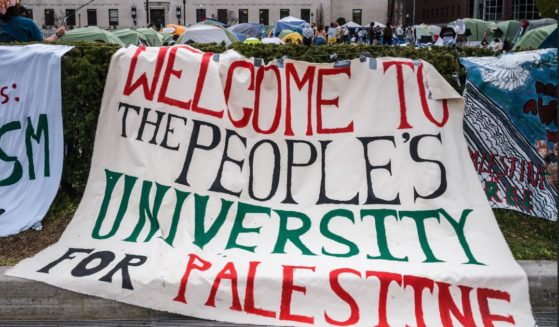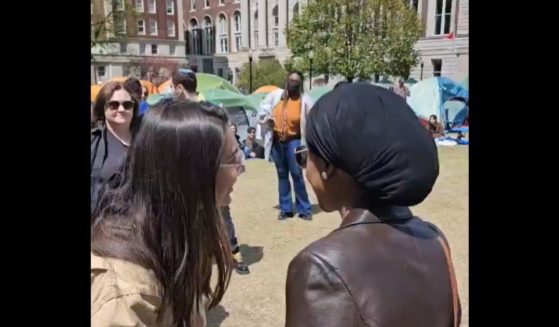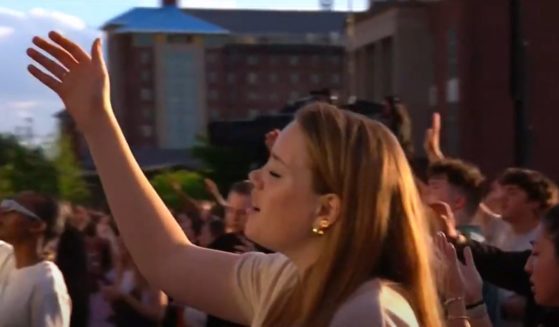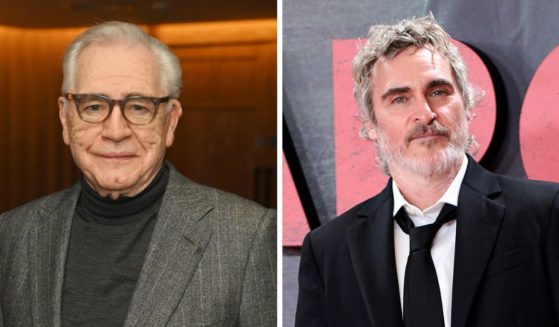Iconic Statue Celebrating WWII Victory Could Be Removed After #MeToo Outcries
The #MeToo movement has bulldozed quite a few things in its path, most notably the careers of prominent Hollywood figures — and rightfully so in many cases.
But now, the movement is aiming to take down an iconic statue in Florida — and Republican Rep. Vern Buchanan isn’t having it.
Despite the apparent popularity of statue removal in 2020, Buchanan isn’t budging when it comes to the iconic “Unconditional Surrender” statue in Sarasota, Florida.
I just urged the Sarasota City Commission to keep the “Unconditional Surrender” statue at the Bayfront. Our veterans and most of the community want the statue to stay right where it is. Read my letter to the commission and let me know what you think. pic.twitter.com/1tHnbaoraS
— Rep. Vern Buchanan (@VernBuchanan) September 9, 2020
“The statue is an iconic landmark enjoyed by residents and visitors alike,” Buchanan wrote Wednesday in a letter to Sarasota’s mayor and other city officials. “It commemorates the celebration of [Victory over Japan] Day and the end of World War II.
“This representation of that moment more than 75 years ago reminds us of an important time in our country’s history and honors the ‘Greatest Generation’ who served and sacrificed.”
The statue is currently slated to be moved to make way for construction, but the fate of the monument post-construction is not clear, according to WUSF Public Media.
A divisive debate over the 25-foot statue in downtown Sarasota centers around whether the statue honors veterans, like Buchanan says it does, or if it glorifies sexual assault because the kiss turned out not to be consensual.
The construction project is scheduled to begin in January 2021, so there is some time before a decision needs to be made.
Even those unfamiliar with the name of the “Unconditional Surrender” statue are likely to know what it looks like.
It depicts a sailor, upon a triumphant return from a victorious World War II campaign, passionately kissing a dental assistant. According to Fox News, the Navy sailor, George Mendonsa, kissed dental assistant Greta Zimmer Friedman in Times Square on Aug. 14, 1945.
The current #MeToo backlash stems from a 2005 interview Friedman gave to the Veterans History Project.
“OK. Let’s get back to the kissing sailor. When he grabbed you and gave you a kiss, what did you feel like?” the interviewer, Patricia Redmond, asked.
“I felt he was very strong, he was just holding me tight, and I’m not sure I — about the kiss because, you know, it was just somebody really celebrating. But it wasn’t a romantic event. It was just an event of thank God the war is over kind of thing because it was right in front of the sign,” Friedman said.
“Did he say anything to you when he kissed you?” Redmond asked.
“No, no. It was just an act of silence,” Friedman responded.
“He just grabbed you, gave you a kiss, and then was gone?” Redmond went on to ask.
“Oh, yeah, we both — we both left, went on our own way,” Friedman replied.
Friedman’s story became a rallying cry for the #MeToo movement, particularly after her death in 2016.
It’s a curious outrage given that Friedman seemed nonplussed about the whole thing. In fact, Friedman spent part of that 2005 interview trying to definitively prove to the interviewer that she was, in fact, the person in the photo.
Despite that, vandals sprayed “#MeToo” on the statue in 2019:
At approximately 12:53 am, our Officers were dispatched to the intersection of N Gulfstream Ave & Bayfront Dr reference to an unknown individual spray painting ‘# MeToo’ on the Unconditional Surrender statue. Additional information is at https://t.co/gv10lGhcja pic.twitter.com/JakU8aI7QY
— Sarasota Police Department (@SarasotaPD) February 19, 2019
“The ‘Unconditional Surrender’ statue is extremely meaningful to the Sarasota’s veteran community and honors their sacrifices for our country,” Buchanan argued in his letter.
That may not be enough to prevent the #MeToo movement from claiming another prominent figure.
This article appeared originally on Patriot Project.
Truth and Accuracy
We are committed to truth and accuracy in all of our journalism. Read our editorial standards.












